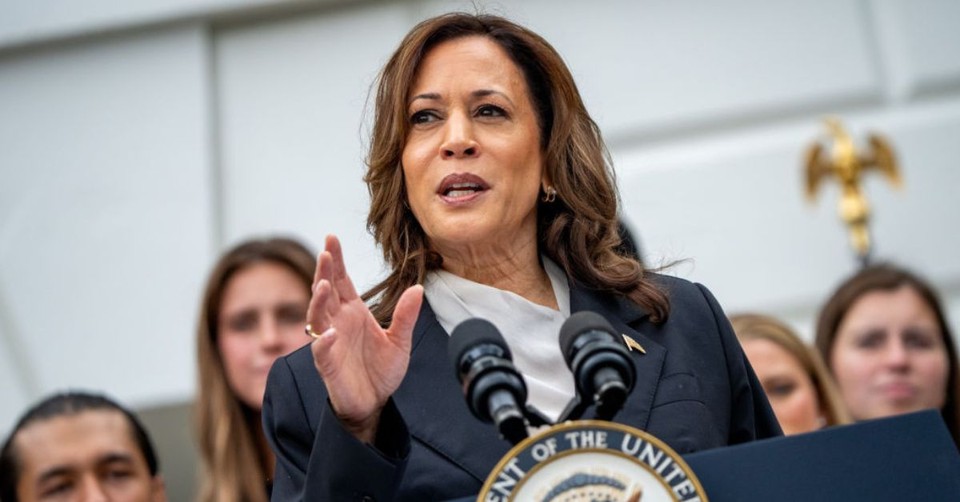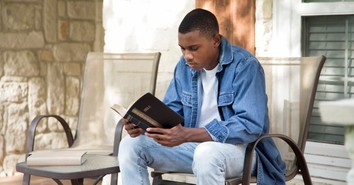Kamala Harris’ Controversial Views on Religious Liberty Spark Concern among Christian Leaders

Christian leaders and organizations are raising alarms about presumptive Democratic nominee Kamala Harris' views on religious liberty, abortion and gender, warning that her positions could jeopardize the rights of religious Americans. Vice President Harris, who already has secured enough delegates to clinch the nomination, was a hero of social liberals when she served as a U.S. senator and, before that, as California’s attorney general before President Biden asked her to join his ticket.
The Ethics and Religious Liberty Commission of the Southern Baptist Convention warns that Harris has attempted many times during her career to “curtail religious liberty protections.”
Most people pay little attention to the Vice President. Historically, it is a bit of an afterthought. Still, VPs often have a record of their own. Given Pres. Biden's decision to end his campaign, VP Harris's record merits examination. We did so here: https://t.co/97yMyk7DbR
— Brent Leatherwood (@LeatherwoodERLC) July 22, 2024
For example, as a U.S. senator Harris supported a bill, the Do No Harm Act, that would have weakened a landmark religious freedom law, the 1993 Religious Freedom Restoration Act that says the “government shall not substantially burden a person’s exercise of religion.” President Bill Clinton, a Democrat, signed it.
Harris and other supporters of the Do No Harm Act argued RFRA is too broad. The Do No Harm Act would have amended RFRA so it does not apply to sexual orientation and gender identity laws, the Ethics and Religious Liberty Commission said.
Also exempted from RFRA application would have been anything “denying a person the full and equal enjoyment of a good, service, benefit, facility, privilege, advantage, or accommodation, provided by the government.”
If it had been passed and signed into law, Kenneth Craycraft of First Things said, a Catholic doctor would have been forced to “prescribe contraceptives or perform abortions if she participates in federal or state reimbursement programs.” It also would have required a “parochial school that receives state grants, for example, to employ persons in open same-sex relationships as teachers or even ministers.”
The Do No Harm Act never became law but nevertheless provided insight into Harris’ stance on religious freedom. Her comments on the bill at the time were widely criticized.
“The freedom to worship is one of our nation’s most fundamental rights,” she said in 2019. “That First Amendment guarantee should never be used to undermine other Americans’ civil rights or subject them to discrimination on the basis of race, gender, sexual orientation, or gender identity.”
In other words, Craycraft said, Harris supports religious within the church building but not so much outside its walls.
“In Harris’s tendentious reading, ‘free exercise’ of religion means ‘freedom to worship,’ and nothing more,” Craycraft wrote. “If the doors of the church are not locked and guarded, or if you are not prevented from praying in your home, you have the full range of ‘the First Amendment guarantee,’ and you are guaranteed nothing more.”
Harris’ beliefs on religious liberty would drive “religious faith to the margins of public life and religious exercise out of public life altogether,” Craycraft wrote.
It’s not the only time Harris’ position on the issue has caused concern among Christian leaders.
In 2018 as a senator, she asked federal judge nominee Brian Buescher a series of written questions about his involvement in the Knights of Columbus, a Catholic fraternal organization. The questions implied that his Catholic beliefs disqualified him from a seat on the court.
“Since 1993, you have been a member of the Knights of Columbus, an all-male society comprised primarily of Catholic men,” Harris wrote. “In 2016, Carl Anderson, leader of the Knights of Columbus, described abortion as ‘a legal regime that has resulted in more than 40 million deaths.’ Mr. Anderson went on to say that ‘abortion is the killing of the innocent on a massive scale.’
She asked: “Were you aware that the Knights of Columbus opposed a woman’s right to choose when you joined the organization? Do you agree with Mr. Anderson that abortion is ‘the killing of the innocent on a massive scale’? Do you agree with Mr. Anderson that legal abortion in the United States has ‘resulted in more than 40 million deaths’?”
Harris also asked Buescher if he was “aware that the Knights of Columbus opposed marriage equality when [he] joined the organization.”
Buescher was confirmed.
The Ethics and Religous Commission (ERLC) also pointed to Harris’ positions on life and gender as causes for concern.
In 2010 as attorney general, she refused to defend, in court, a voter-approved constitutional amendment that defined marriage as the union of one man, one woman. She then went one step further by fighting the amendment in court.
Harris also has been a “vocal supporter of the extreme Equality Act,” which would add “sexual orientation and gender identity to the Civil Rights Act of 1964” and “has been viewed as the most serious threat to religious liberty to ever be considered in Congress, the ERLC said.
Southern Baptists have always stood up for religious liberty. Harris supports the Equality Act, which would be the most extreme attack on religious liberty ever considered by Congress.https://t.co/ONmoc5Wkkm
— Brent Leatherwood (@LeatherwoodERLC) July 22, 2024
On life, Harris supports taxpayer-funded abortion and wants Roe v. Wade to be codified into law. In 2020, she was the first sitting president or vice president to visit an abortion clinic.
ERLC President Brent Leatherwood said Harris’ positions are extreme.
“Should delegates to the Democratic National Convention confirm her as the nominee, it will be cause for considerable concern among pro-life advocates and those who hold to a biblical definition of marriage,” Leatherwood said in a Baptist Press column.
Photo Credit: ©Getty Images/Andrew Harnik/Staff
Michael Foust has covered the intersection of faith and news for 20 years. His stories have appeared in Baptist Press, Christianity Today, The Christian Post, the Leaf-Chronicle, the Toronto Star and the Knoxville News-Sentinel.
Listen to Michael's Podcast! He is the host of Crosswalk Talk, a podcast where he talks with Christian movie stars, musicians, directors, and more. Hear how famous Christian figures keep their faith a priority in Hollywood and discover the best Christian movies, books, television, and other entertainment. You can find Crosswalk Talk on LifeAudio.com, or subscribe on Apple or Spotify so you never miss an interview that will be sure to encourage your faith.
Originally published July 23, 2024.







